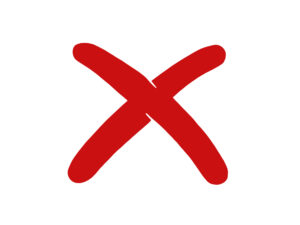How ethical and sustainable is Beko?
Beko is included in The GOOD Shopping Guide’s Cookers Ethical Ratings Table. Beko has yet to meet our Ethical Benchmark and sustainability standards, but we hope that the brand will make changes to function as a more ethical organisation.
More information on the issues this industry faces may be found in The GOOD Shopping Guide to eco-friendly cooker brands.
Then, in our Cookers Ethical Ratings Table, compare Beko to other brands.
What does Beko do?
Beko was founded in 1989 and is now one of the leading home appliance brand in the UK. Beko produces refrigerators, laundry appliances, dishwashers, cookers and other small appliances that are now available in more than 130 countries. In 2020 Beko’s production plants became carbon neutral and the cooker brand also supports the charity Barnardo’s. Read more on Beko’s brand history here.
Beko is owned by Koç Holding A.Ş.
What is Beko’s connection to Fossil Fuels?
Beko received a low rating for Fossil Fuel involvement as the brand’s parent company is heavily involved with subsidiaries in natural gas, oil tankers and oil refining.
Beko and Boycott Turkey
The brand received a middle rating for Human Rights, Code of Conduct and Armaments. Read about the Human Rights issues that the UK Boycott Turkey campaign has been criticising Beko for.
Beko’s code of conduct contains information all most necessary issues, but is vague in regard to working hours and child labour restrictions, following relevant country law, but not setting its own boundaries.
Beko’s parent company owns Otokar, a manufacturer of military vehicles used in the Turkish defence industry as well as other defence companies.
Past Criticisms of Beko’s ethical record
Beko faced criticism after serious defects in Beko’s gas cookers were linked to the death of 18 people between 2008 and 2015. The cookers produced levels of carbon monoxide high enough to kill within minutes if the grill was used with the door shut.
In what areas does Beko score well for its ethics?
Beko receives a high score for its Environmental Report as the cooker brand’s Sustainability Page contains 2030 targets regarding energy consumption, water, electricity, waste and renewable energy investments. The Sustainability Page also details evidence of progress. Beko also receives a high score in our Animal Welfare and Political Donation categories.
How can Beko improve its Ethical Rating?
The Ethical Rating of a brand is divided into three categories by The GOOD Shopping Guide: the Environment, People and Animals. Find out more about how we rate.
Beko may improve its rating and fulfil our fundamental ethical requirements by improving its Code of Conduct to set its more regulations on child labour and working hours as well as cutting ties with some companies involved with fossil fuels.
Why not check out The GOOD Shopping Guide’s Ethical Accreditation if you work for or with a Cooker company that places ethics, ESG and CSR targets high on its priority list?
Contact us to learn more about Ethical Accreditation, or complete our short form for an initial ethics and sustainability evaluation.
Ethical performance in category
GSG score
GSG category benchmark
Ethical Rating
Environment
-
Environmental Report
Good
-
Fossil Fuels
Poor
Animal
-
Animal Welfare
Good
People
-
Armaments
Acceptable
-
Code of Conduct
Acceptable
-
Political Donations
Good
-
Human Rights
Acceptable
Other
-
Ethical Accreditation
Poor
-
Other Criticisms
Acceptable
= GSG Top Rating = GSG Middle Rating = GSG Bottom Rating
